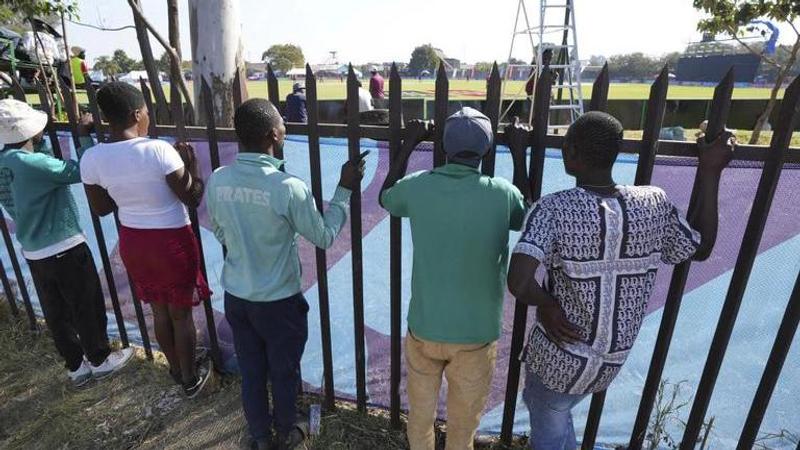Published 09:28 IST, July 3rd 2023
‘We persevered': Spiritual home of Black cricket in Zimbabwe finally gets international recognition
The spiritual home of Black cricket in Zimbabwe, where players looked after the pitch and planted the grass themselves in its early days, finally became a fully fledged international venue when West Indies beat the United States in a Cricket World Cup qualifying game on June 18.

Bill Flower realized 30 years ago that cricket wouldn’t survive, let alone bloom, in Zimbabwe unless it reached out to the country’s Black majority and found a place in their hearts.
Part of his plan finally came together two weeks ago when Takashinga Cricket Club, set in one of the country’s oldest Black townships, hosted an international game for the first time.
The spiritual home of Black cricket in Zimbabwe, where players looked after the pitch and planted the grass themselves in its early days, finally became a fully fledged international venue when West Indies beat the United States in a Cricket World Cup qualifying game on June 18.
READ | ICC ODI World Cup Qualifiers 2023: Zimbabwe to clash with Scotland to scrap it out for final place
It was a landmark match in which Takashinga lived up to its name, which means “We persevered” in the local Shona language.
“It’s absolutely fantastic and I know that my father would be very proud to witness it, and I’m certainly proud,” said Bill Flower’s son, Andy, the former Zimbabwe captain and Ashes-winning coach with England whose impressive resume includes once being a Takashinga player himself.
Zimbabwe will qualify for the World Cup in India later this year if it beats Scotland on Tuesday in the qualifying tournament it is hosting. That makes Takashinga’s emergence as an international ground even more special, even if Zimbabwe, a regular participant at the World Cup, didn’t play there during the qualifiers.
Bill Flower started in the early 1990s, digging deep into his own pockets to coach Black kids from Harare’s Highfield township where Takashinga is. Then, there were hardly any cricket facilities in Highfield and families couldn’t afford to send their children to Harare Sports Club to practice. Bill Flower used his reputation as a respected coach, and his own car, to take them to the prestigious club.
In Highfield, he discovered talents like Tatenda Taibu, who was nine when he joined Flower’s coaching squad. Taibu went on to become a Zimbabwe test captain.
Bill Flower also found there was potential in Highfield beyond players. A small group had just started Takashinga Cricket Club and it was an obvious opportunity to build something bigger.
Andy Flower, then Zimbabwe’s best player, took his father’s lead in identifying Highfield as crucial for cricket in the southern African nation, which was under white minority rule until 1980 and struggled with racial tensions for years after. A big-name white player, he decided to join the relatively unknown Takashinga team.
“I knew how committed they were in building their club,” Andy Flower said. “I thought it was helpful to have some of my experience, go there and work with them at training, during games, talk to them in the dressing room.”
“I thought it was something that would help to accelerate their development. I thought the bonus would be the mixing of Black and white. That was a special time in my life.”
Takashinga has produced more and more players, including five national team captains so far. Stephen Mangongo, one of the club’s founding members, became Zimbabwe coach.
“Takashinga subconsciously spread self-belief among the generality of Blacks to take cricket seriously countrywide,” said Mangongo.
But the transformation wouldn’t be complete until cricket was played at the highest level in Highfield.
Updated 09:28 IST, July 3rd 2023




